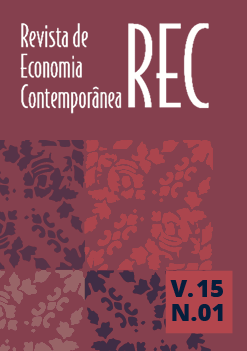A CEPAL ainda é uma Escola do Pensamento? [Is ECLAC still a School of Thought?]
Keywords:
CEPAL, políticas de desenvolvimento, teorias do desenvolvimento [ECLAC, development policies, development theories]Abstract
O artigo discute se a CEPAL ainda se constitui como uma Escola do Pensamento, status que lhe foi conferido por diversos livros especializados na discussão das Teorias do Desenvolvimento. A tese sustentada no artigo é a de que esta condição de Escola do Pensamento foi muito específica de uma situação de funcionamento da agência nos seus primeiros anos de existência, no contexto de um debate sobre que políticas de desenvolvimento deveriam ser implementadas para que países subdesenvolvidos pudessem almejar o desenvolvimento. O artigo procura estabelecer uma diferenciação entre esta condição dos primeiros anos e a atual, mostrando que agora a agência tem uma atuação compatível com a sua natureza de órgão multilateral pertencente ao esquema institucional das Nações Unidas.
=================
The article discusses if ECLAC still constitutes a School of Thought, status conferred on it by several specialized books in the discussion of theories of development. The thesis advanced in the article is that this condition of the school of Thought was a very specific situation of the agency in its early years, in the context of a debate on if development policies should be implemented so that developing countries could aspire to development. This paper attempts to differentiate between this condition of early years and the current, showing that now the agency has a role compatible with their nature as multilateral body belonging to the institutional framework of the United Nations.


